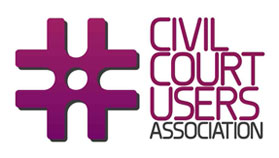Make your enquiry
County Court Judgment & Questionnaire
"Our experience is the right solution"
CCJ Removal Services
It is becoming increasingly more common for people to use the services of credit reference agencies to check their credit history with companies like Experian and Equifax or to obtain a quick overview of aspects of their Credit Report. As such, it is becoming increasingly more common for people to find County Court Judgments (CCJs) registered against their names for legal proceedings which they may not have been aware of.
CSB Solicitors Fixed Fees for CCJ Removals
At CSB Solicitors we offer a fixed fee solution to assist individuals and businesses with CCJs make contact with their Creditors with a view to having the CCJ removed.
Uncontested Applications / Applications by Consent:
1 x CCJ (£450 plus vat) plus £108 Court Fee
2 x CCJ (£800 plus vat) plus £108 Court Fee
3 x CCJ (£1,100 plus vat) plus £108 Court Fee
Contested Applications / Applications to set judgment aside:
£900 to £1,500 plus vat Depending on the complexity of your case. In addition there may be an advocacy fee of approximately £350 plus vat (depending on the location and duration of a Hearing) and a Court Fee of £275.
Why choose CSB Solicitors?
CSB Solicitors, are a regulated Law Firm and our qualified litigation solicitors will personally manage your case to conclusion, unlike other non-regulated businesses which have paralegals or other non-qualified people managing your case.
We offer a free case assessment to see if you have legal grounds to have your CCJ removed.
We offer a “fixed fee” solution to you ensuring that you never pay for our hourly rates and you are aware from the outset what instructing CSB Solicitors will cost you. In the first instance we will make contact with the Claimant or their Solicitor to see if an agreement can be reached by consent between the Parties.
Acting promptly will certainly increase your chances of successfully having a CCJ set aside or removed. Do not delay in contacting our litigation team who will be happy to assist you.
County Court Judgment - How to get a CCJ removed?
Our Solicitors would be delighted to help you with removing your CCJ. Please complete our County Court Judgment Questionnaire in full so that we can accurately assess your case. The more information you can provide, the quicker we can start working on your matter and working towards obtaining a successful resolution and CCJ removal.
What is a CCJ and what are the implications for you?
A County Court Judgment (CCJ) is a judgment against you for a debt you have not paid.
If you have a CCJ, it means that someone has sued you and been successful – they have won their case against you and that they have entered a Court Judgment in their favour against you. This means that you are now legally liable to repay the amount of money that they have claimed against you.
Depending upon the value of the debt which you are now legally obliged to pay, the Claimant can use several methods to enforce the CCJ against you, including, instructing High Court Enforcement Officers (CCJs above £600) and Bailiffs to attend to your property to remove goods, charging orders against your property, attachment of earnings and third party debt orders (to freeze monies held in your bank account).
How long does a CCJ last on my record?
What impact may a CCJ have?
Whether you are trying to obtain a new mobile phone contract or are thinking of buying or renting a property a CCJ can have a huge impact on your life. Having an outstanding CCJ may mean that you are:
- Declined for all forms of credit,
- Stopped from obtaining a mortgage,
- Prevented from buying or renting a house,
- Stopped from getting professional jobs which require credit checks,
- High Court Enforcement Officers/Bailiffs coming to your house,
- Vehicles and other assets being taken away,
In many cases legal proceedings will have been served at a former address and therefore, you will not have had the opportunity to defend the legal proceedings or make a payment at the time of service of the Claim Form. In these circumstances, the CCJ will have been entered against you in default.
Will simply paying off the CCJ solve my problem?
If you choose to pay off the CCJ, your credit file will show that the CCJ has been marked as satisfied. This is because any payment made by you (after 30 days of judgment being entered) will mean that the CCJ has been paid in full, however, the negative impact of the CCJ will continue to remain for a period of 6 years on your credit file.
How long is the process?
While no two cases are the same, this process may take approximately 2 to 3 months. The duration is dependent on how quickly the Claimant/Claimant Solicitors respond to our enquires, whether the matter becomes contested and how busy the Courts are.
CCJs issued in legal proceedings with your knowledge?
If you have received a CCJ, in legal proceedings which you have been aware of you will need to act promptly and consider carefully whether you have a valid defence to the claim. If yes, you could apply to the court for an order to “set aside” the judgment.
An application to have the CCJ set aside must be made promptly (ideally within 30 days) of the date of the CCJ.
If the Claim Form was sent to your last known address and you simply did not respond to the Claim Form (or ignored it), the Court in unlikely to set the CCJ aside unless you:
(a) have a real prospect of successfully defending the claim; or
(b) it appears to the court that there is some other good reason why;
(i) the judgment should be set aside or varied; or
(ii) you should be allowed to defend the claim
If any of the above grounds are satisfied, the Court may set the Judgment aside.
Have you been surprised by a County Court Judgment? (Judgment in Default)
The Civil Procedure Rules Parts 13.2 and 13.3 are the rules which the Courts use to govern the setting aside of default judgments.
Applications to set aside judgments in default are made on two grounds:
(a) The court must allow an application to set aside a default judgment if that judgment has been “wrongly entered” (CPR 13.2).
(b) Or other circumstances, the court has the discretion to, and may, set aside a default judgment (CPR 13.3).
How to Set Aside Judgment in Default
An application to court using Form N244 should be made. A fee is payable for the application. The application notice should state the grounds for applying to set aside judgment, and whether the application is made under CPR 13.2 or CPR 13.3, or both. A draft of the court order requested should be attached to the application form.
The application must be supported by evidence. The evidence will need to show the basis for the application and should include:
(a) Evidence that the defendant did not receive the claim form and/ or the particulars of the claim.
(b) Evidence of defective service (either at an incorrect address or incomplete address used).
(c) Evidence as to when you became aware of the CCJ or the reason for any delay in making the application to set aside a judgment.
(d) Details and evidence of why you believe that you have a real prospect of successfully defending the claim, or any other reason why the judgment should be set aside or varied, or why the defendant should be allowed to defend the claim.
























